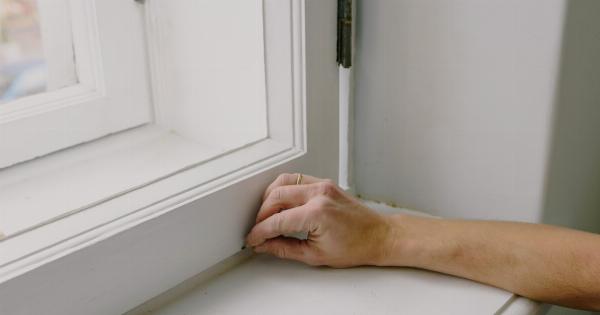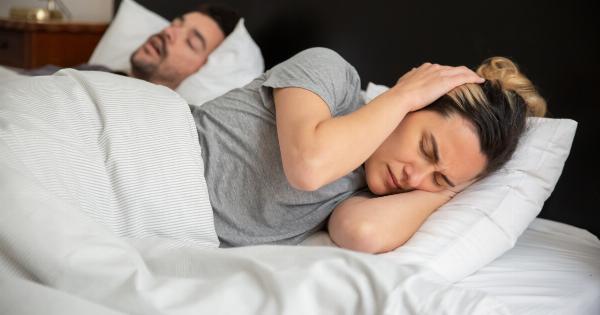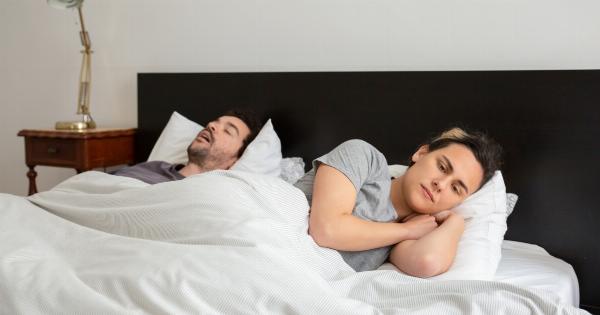Snoring can be caused by various lifestyle factors. Making some simple changes in your daily routine can help decrease the intensity and frequency of snoring:.
– Maintain a healthy weight: Excess weight, especially around the neck and throat area, can contribute to snoring.
Losing weight can reduce snoring significantly.
– Avoid alcohol and sedatives: Alcohol and sedatives relax the muscles in the throat, making them more likely to collapse and obstruct the airway.
– Quit smoking: Smoking irritates the lining of the throat and can cause inflammation, leading to snoring.
– Establish a regular sleep schedule: Fatigue can worsen snoring, so it’s important to establish a consistent sleep routine and get an adequate amount of sleep each night.
– Sleep on your side: Sleeping on your side instead of your back can help prevent the tongue and soft palate from collapsing, reducing snoring.
2. Sleeping positions that promote better breathing
The way you position yourself while sleeping can directly impact snoring. Here are the sleeping positions that promote better breathing:.
– Sleeping on your side: This position helps keep the airway open and prevents the tongue from obstructing the throat.
– Elevating your head: Sleeping with your head slightly raised, using a thicker pillow or adjustable bed, can help open up the airways and reduce snoring.
3. Nasal strips and nasal dilators
Nasal strips and nasal dilators are external devices that can help alleviate snoring caused by nasal congestion or a deviated septum:.
– Nasal strips: These adhesive strips are applied across the nose. They work by widening the nostrils, improving airflow, and reducing snoring.
– Nasal dilators: These small devices are inserted into the nostrils to keep them open.
They help increase nasal airflow and minimize snoring caused by nasal blockages.
4. Oral appliances for snoring
Oral appliances, also known as mandibular advancement devices or MADs, can be effective in reducing snoring. These devices are worn over the teeth and adjust the position of the jaw and tongue to prevent the airway from becoming blocked during sleep.
They are typically prescribed by dentists or sleep specialists.
5. Surgical options for severe snoring
If lifestyle changes and other remedies fail to alleviate your snoring, surgical interventions may be considered. These options are usually recommended for severe cases of snoring when other treatments have not been successful:.
– Uvulopalatopharyngoplasty (UPPP): This surgery removes excess tissue from the throat, including the uvula, tonsils, and part of the soft palate.
– Laser-assisted uvulopalatoplasty (LAUP): It uses laser technology to remove or reshape the uvula and soft palate.
– Radiofrequency ablation (RFA): RFA involves the use of radiofrequency energy to shrink and stiffen the tissues of the soft palate and uvula.





























